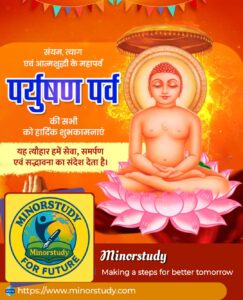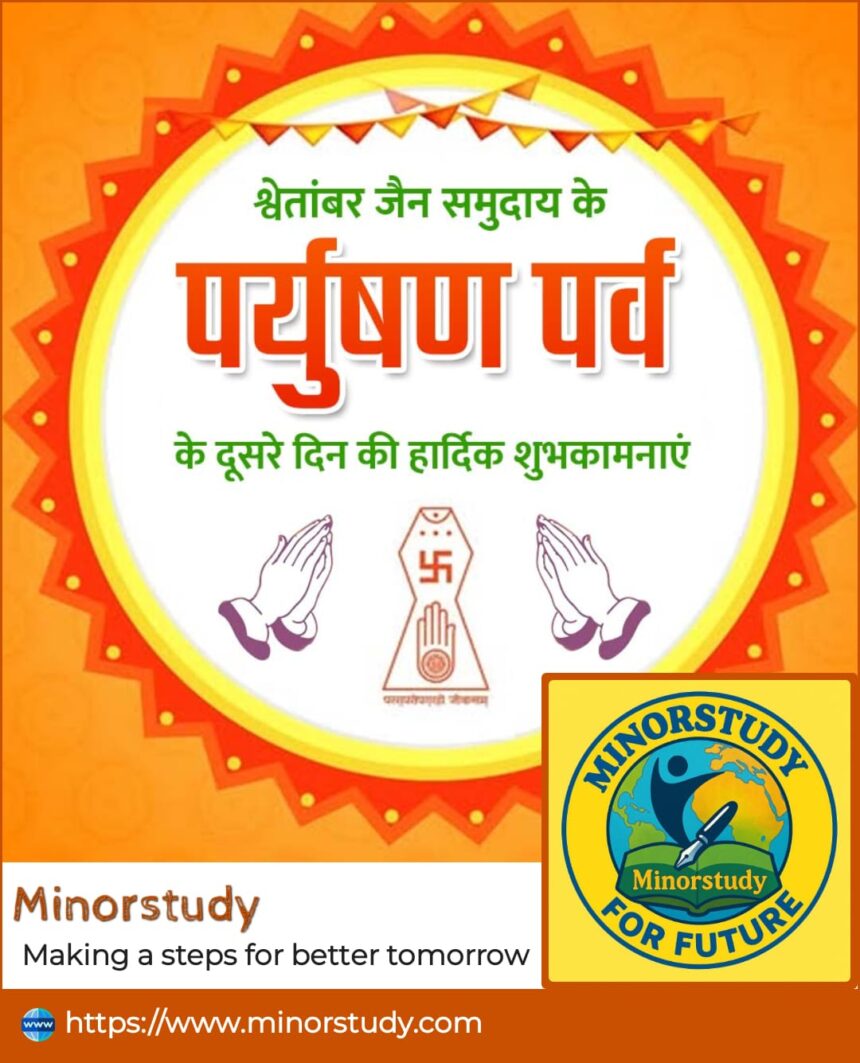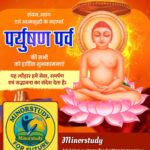Amazing Reasons Why Paryushan Parv is a Powerful Festival of Purity and Forgiveness
Introduction
India is a land of festivals where every occasion carries spiritual depth and cultural beauty. Among them, Paryushan Parv holds a very special place for the followers of Jainism. This sacred festival is not just about rituals but about self-reflection, discipline, forgiveness, and spiritual upliftment. It is celebrated with immense devotion across the world by the Jain community and is considered one of the most significant observances in Jain Dharma.
Paryushan, often called the festival of self-purification and penance, emphasizes the importance of controlling desires, following vows, and leading a life of truth, non-violence, and forgiveness.
History of Paryushan Parv
The word Paryushan comes from the Sanskrit words pari (all around) and ushana (to stay or reside). It means “to stay closer to one’s soul.”
Historically, Paryushan is believed to have originated from the time of the 24 Jain Tirthankaras, especially during the monsoon when monks would stay in one place due to the rains.
The festival was designed so that both monks and householders could focus on introspection, scriptures, meditation, and self-discipline.
It is said that Lord Mahavira, the 24th Tirthankara, emphasized the essence of forgiveness (kshama) and austerity during this period.
Timeline of Paryushan Parv
Shwetambar Jains: Celebrate Paryushan for 8 days.
Digambar Jains: Observe Das Lakshan Parv, lasting 10 days.
The last day is very significant:
For Shwetambars: Samvatsari (Forgiveness Day)
For Digambars: Anant Chaturdashi
The dates of Paryushan change every year based on the lunar calendar but usually fall between August and September.

Special Facts about Paryushan Parv
It is one of the most important Jain festivals, focused on self-purification rather than external celebrations.
Followers take vows of fasting, ranging from partial fasts to complete fasting for all 8 or 10 days.
People engage in Pratikraman (self-reflection) to review and repent for mistakes.
The festival strongly emphasizes Ahimsa (non-violence)—avoiding harm to even the smallest living beings.
Jain scriptures like the Kalpa Sutra are read during this period.
Forgiveness is the ultimate message—”Micchami Dukkadam” is said to ask for forgiveness for any harm caused knowingly or unknowingly.
It is a festival of peace, simplicity, and harmony with nature.
Food habits change—many avoid root vegetables and practice strict vegetarianism.
This is the time when community bonding and spirituality peak together.
Significance of Paryushan Parv
Spiritual Cleansing: Just like cleaning a mirror, Paryushan cleanses the soul of negativity.
Forgiveness (Kshamavani): Asking for forgiveness dissolves hatred and brings peace.
Self-Discipline: Observing fasting, vows, and meditation strengthens willpower.
Ahimsa in Practice: Encourages compassion towards every living being.
Cultural Bonding: Families come together for rituals, prayers, and discourses.
Peaceful Society: The values practiced during Paryushan help reduce conflict and promote harmony.
Observance of Paryushan Parv
Daily Pratikraman (introspection ritual).
Reading of the Kalpa Sutra and other Jain scriptures.
Fasting—from single-day fasts to continuous fasting for 8 or 10 days.
Meditation and silence to control anger, greed, and ego.
Offering prayers in Jain temples and attending spiritual discourses.
On the final day, Kshamavani is observed: people greet each other saying, “Micchami Dukkadam” (may all the wrongs I have done be forgiven).
Wishing on Paryushan Parv
If you want to wish someone on this sacred festival, you can say:
🌸 “Wishing you a blessed Paryushan Parv filled with peace, purity, and forgiveness.”
🌸 “May this Paryushan Parv inspire you to embrace non-violence, self-discipline, and love for all beings.”
🌸 “Micchami Dukkadam – If I have hurt you knowingly or unknowingly, please forgive me.”
FAQs on Paryushan Parv
Q1. Why is Paryushan celebrated?
👉 To purify the soul, seek forgiveness, and practice non-violence and self-discipline.
Q2. How long is Paryushan Parv observed?
👉 8 days by Shwetambar Jains and 10 days (Das Lakshan) by Digambar Jains.
Q3. What is the most important day of Paryushan?
👉 Samvatsari for Shwetambars and Anant Chaturdashi for Digambars.
Q4. What is “Micchami Dukkadam”?
👉 It means “May the wrongs I have done be forgiven.”
Q5. Do only Jains celebrate Paryushan?
👉 Yes, but its universal message of forgiveness and peace inspires people of all faiths.

Importance of Paryushan Parv in Our Life
Helps us let go of grudges and anger.
Promotes inner peace through meditation and prayer.
Makes us more compassionate towards all beings.
Improves mental and physical health through fasting and discipline.
Strengthens family and community bonds.
Teaches us to live with simplicity and gratitude.
Daily Life Impacts of Paryushan Parv
Practicing forgiveness daily helps reduce stress.
Following Ahimsa leads to more kindness in daily interactions.
Fasting and self-control improve health and willpower.
Encourages a lifestyle of minimalism and sustainable living.
Promotes positive social relationships through mutual respect.
Conclusion
Paryushan Parv is not just a religious festival, it is a life-changing spiritual practice. It reminds us that life is not about accumulating wealth or holding grudges but about purifying our soul, embracing forgiveness, and living with compassion. The beauty of Paryushan lies in its universal message of peace and humility, which holds relevance for every human being, regardless of religion or background.
Let us take inspiration from this sacred festival and adopt its values in daily life. On this Paryushan, let us sincerely say:
✨ “Micchami Dukkadam – If I have hurt you knowingly or unknowingly, I ask for your forgiveness.”








